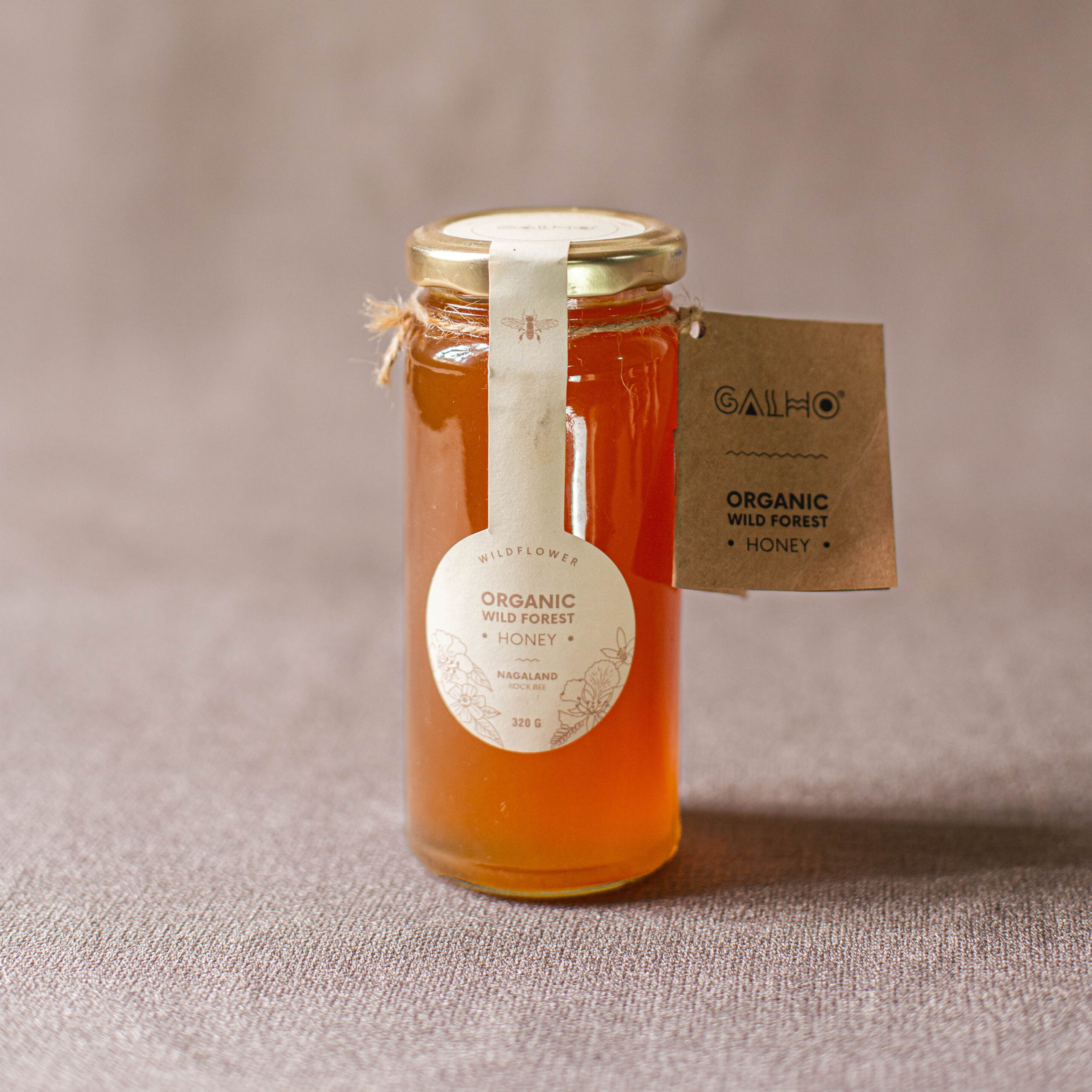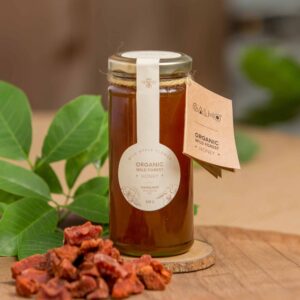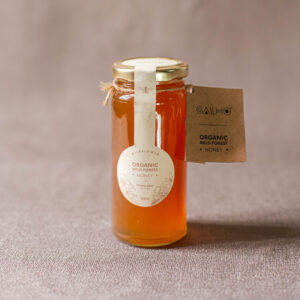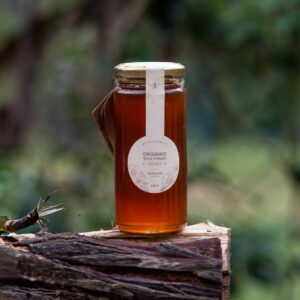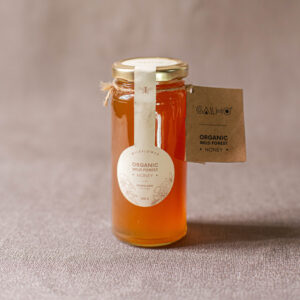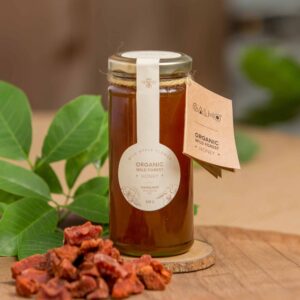While we talk of preserving forests and ensuring biodiversity, foreign animals and species, as well as giant trees, are the focal points. Many times, however, we overlook the pack’s smallest members.
Enter the Apis cerana bee, guardian of the forest, who toils without a sound to sustain the rich life that encompasses us.
In addition to being producers of top-class Apis cerana honey, they are preservers of healthy, unadulterated forest habitats. What they produce is more than honey; growth, balance, and life are the benchmarks.
Let us take a closer look at how Apis cerana bees help maintain a healthy forest and why they need to be preserved for a greener and healthier tomorrow.
Who Are the Apis Cerana Bees?
Apis cerana bee, also known as Asian honeybee, is native to South and Southeast Asia. Apis cerana bees are well adapted to living in tropical and subtropical climate conditions, and, being different from their Western relatives (Apis mellifera), they construct their colonies in tree cavities, caves, or forest crevices without disrupting nature. Apis cerana bees produce honey that is unique and much sought after, Apis cerana honey, for its clean, floral flavour and its medicinal properties.
Pollination Power: The Silent Forest Builders
Pollination maintains the health of an ecosystem, and in that regard, Apis cerana bees are absolute professionals.
- Native Plant Pollination: The Apis cerana bee, in contrast to most commercial bee species, has co-evolved with native plants over thousands of years, providing them with special adaptations for pollinating native trees, shrubs and flowering plants.
- Biodiversity Support: The transfer of pollen from plant to plant by bees enables forests to be diverse and healthy. Variety in plants is required to help forests withstand disease, insects and climatic changeability.
- Support of Food Web: Various fruits, seeds, and nuts are all reliant on the pollination activities of bees. They, in turn, support birds, mammals, and insects, creating a food web that depends on numerous interconnected processes.
If Apis cerana bees are absent, much of the flora in our forests would be incapable of reproducing, which would result in depleted ecosystems and slow deterioration of forest health.
Unique Traits That Enhance Forest Sustainability
Apis cerana remains a worthwhile organism for forest ecosystems and possesses special characteristics that help nature.
1. Adaptability to Harsh Conditions
With the strength to withstand harsh conditions, Apis cerana will perform optimally in a wild habitat, e.g., thick forests, elevated environments, and tropical regions. Their strength to withstand harsh conditions enables them to be ideal pollinators in remote and delicate ecosystems where other bees will not be able to survive.
2. Foraging behaviour
Ceranas are careful yet effective foragers. Instead of draining nectar and pollen from an area, they will cautiously forage in a bigger-than-usual area and do less damage while more effectively pollinating flowers.
3. Swarm intelligence
Apis cerana colonies will split and create a new colony nearby if resources start running low. This beneficial characteristic signifies greater overall bee population density, which makes pollination possible for greater land masses and facilitates the regeneration of forests.
Apis Cerana Honey: A Sustainable Treasure
When you choose genuine Apis cerana honey, you’re not just buying a high-quality-tasting product. You’re also choosing to support straight-up sustainable operations and forest conservation. Here is how:
- Minimum Intervention: An Apis cerana honey harvest involves less artificial hive management and thus keeps disturbance to a minimum in natural habitats.
- Sustaining Forests: Responsible honey harvesters rely on healthy forests. This establishes a direct reason to save trees, vegetation, and wild environments.
- Indigenous Support: Globally, local populations harvest Apis cerana honey sustainably. This kind of informed harvesting serves to uphold ecological balance and establish livelihoods.
Buying Apis cerana honey directly contributes to saving forests and the traditional way of life.
The Threats Facing Apis Cerana Bees
Unfortunately, as with all of the world’s pollinators, Apis cerana is also at risk.
1. Deforestation: As forests are cleared for agriculture, sustainable forestry, and urbanization, bees lose habitat and sources of foraging.
2. Pesticides and Chemicals: The use of chemicals and pesticides is slowly killing bees and decreasing colony numbers and pollination rates.
3. Invasive Species: Strong non-native bee populations of different species (e.g., Apis mellifera) and the introduction of invasive bee parasites (e.g., Varroa mite) threaten Apis cerana colonies and their future.
4. Global Warming: Climate change has altered rainfall patterns and dates of flowering plants, disturbing the environmental timing bees have evolved into.
If we do not make changes, catastrophic repercussions will happen, resulting in the loss of Apis cerana and affecting the ecosystems of the forest, wildlife, and even human crops.
How We Can Support Apis cerana and Forest Sustainability
Apis cerana bees and their habitats are conserved by the collaborative actions of governments, businesses, and consumers.
1. Support Sustainable Apis cerana Honey Production
Buying from brands such as Galho that offer sustainably harvested Apis cerana honey helps create a market for sustainability. Purchase from suppliers who:
- Employ non-invasive, conventional harvesting techniques.
- Prioritize bee health and forest protection.
- Engage in cooperation with local communities.
2. Plant Native Plants and Trees
Even small-scale efforts, such as planting local flowers, can help wild bee populations with shelter and food supply.
3. Advocate Against Deforestation
Supporting reforestation preserves important ecosystems for Apis cerana bees.
4. Restrict Pesticide Use
The buying of organic products and promoting pest-controlling legislation reduces chemical contact for all pollinators.
5. Spread Awareness
Educating others about the importance of Apis cerana bees can build public support for conservation programs and policy changes.
Final Thoughts
It is simple to overlook the small Apis cerana bee in the shadow of towering forests and regal wildlife. Without small pollinators such as these, though, our ecosystems would collapse.
Apis cerana bees are the architects of biodiversity, the unsung protectors of good forests, and producers of one of nature’s best nectars, Apis cerana honey.
Their existence is forever linked to the existence of our world’s most vital ecosystems.
The next time you take a spoonful of Apis cerana honey, remember you’re savouring more than sweetness. Choose a brand such as Galho, which is famous for its ethical bee farming processes that help preserve the environment.
You’re tasting the work of a tiny forest hero and the promise of a greener tomorrow.
